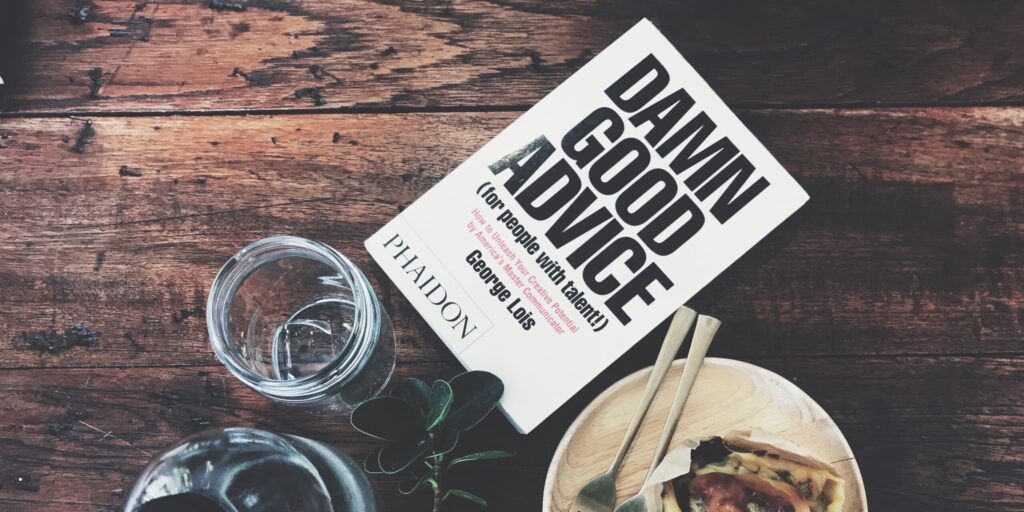Read time 7 minutes
This blog is another opportunity to feel grateful. Thank you, Universe, for continuing to bless me with recovery and health.
When the world around you is silent, it takes only one right voice to become powerful.
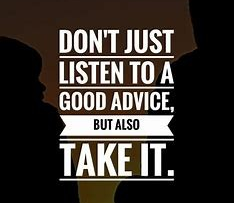
Powerful voices can nurse us especially when we experience a rough patch in life. Chronic ailments can disrupt the balance of normal life and bring a shift in one’s ability to function.
In my experience, Isaacs’ Syndrome is not among those diseases that can be managed alone.
In 2016, I was diagnosed with a rare disease called Isaacs’ Syndrome. Isaacs’ is a neuromuscular health condition that stems from muscle hyperactivity. In the process, I also discovered that I had Lyme disease. Lyme is a bacterial illness that gets transmitted through ticks.
Glaucoma also accompanied me. Glaucoma is an eye-related disease that damages the optic nerves. And Membranous Glomerulonephritis is a progressive kidney disease. I faced tremendous issues with my gut, stomach acid, and digestive enzymes. During my journey, I also developed Irritable Bowel Syndrome (IBS), Diabetes, Frozen Shoulder, Eczema, and Blood Pressure.
The way the extrinsic stimulus unfolded evoked a shocking biological response for me. As you might surmise, these diagnoses altered the course of my life irrevocably.
Suddenly, I was sitting on my bed with packets of pills stacked up and every day revolved around managing chronic symptoms. Navigating through physical limitations, hospital visits, stress, and financial strain was indeed overwhelming. The cognitive fog made my thinking even more difficult.
I felt like I lost myself.
During this period of my diagnostic odyssey, some suggestions came across to help me take control of my situation. Incorporating this power-packed advice as a daily practice provided much-needed healing and optimism. They became my words of encouragement and helped me deal with challenges by fostering hope.
The Power of Positive Mindset
I wasn’t negative however, instances during my rare journey trapped me in a cycle of unwanted thoughts.
Every morning, I woke up with a clutter of worries. I was trapped in immense fear of future uncertainties, professional impact, and severe repercussions of medicines and treatments. These thoughts were relentless and made it hard to focus on anything else.
My feelings and inner monologue were telling me things that weren’t true.
A change in perspective could open my mind to possibilities and help to get out of this rut. The situation was distinct therefore I preferred to gather valuable suggestions from the experienced.
These worthwhile suggestions shifted my perspective and aided my recovery process:
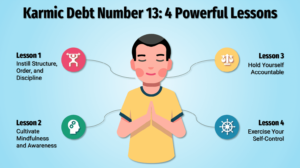
Karma is all about creating, recreating, healing, and transcending as humans. It is a Sanskrit term that means action or deed. It is believed that our words, actions, and even thoughts have direct consequences on our present and future lives.
The law of karmic debt is inevitable and once we attempt to understand it better, things start changing. Therefore, if we want a meaningful life, it’s important to cultivate positive karma.
Self-awareness plays a very crucial role in enabling intentional growth. Positive energy, sharing resources, forgiveness, acts of kindness, and honesty can go a long in building good karma.
It was a great suggestion to settle my karmic debt through positive changes. I tried to engage in good karmic actions and meditate.
2) Build a dream team of doctors

Medicine for sure is a team sport, and that’s exactly how I was asked to perceive it.
Complex health conditions need healthcare professionals to work together for a cure. When a cohesive unit works together, they are expected to improve health outcomes.
I engaged a good team of doctors who were designed to overcome complex situations and enhance my health outcomes.
3) Manage medical emergencies

Each of us is exposed to various health hazards. There are many moments of ambiguity. Medical emergencies are nearly inevitable and often strike without prior warning.
A rare disease patient’s world is full of surprises.
Being prepared for medical emergencies is essential to cope with unanticipated experiences. It took my family a couple of episodes to become familiar with my health requirements and deal with my situation competently.
Being prepared and proactive saved major complications during medical emergencies.

Realizing that almost 85% of your rare medical expenses were covered is a relief.
Insurance plays a vital role in managing rare and chronic diseases.
Typically, some diseases are often characterized by high complexities and exorbitant expenses. Rare diseases can be life-threatening and need long-term care. They are associated with unexpected financial burdens.
Health insurance played an important role in my well-being and in giving me financial freedom.
5) Keep informed about upcoming treatments, (CRISPR)

Gene editing technology like CRISPR can cure many diseases including rare symptoms.
CRISPR-Cas9 is proving to become a revolutionary gene-editing system. It allows precise changes to the DNA. Scientists can either disrupt or correct specific genes trying to address many diseases.
I keep myself informed on concepts that can help empower care and future cures.

No treatment should be indefinite. Except in the case of lifelong medicines.
E.g. tapering medicines is the practice of slowly reducing the dosage. The medicines are reduced before stopping them completely. Generally, the process helps to control the withdrawal symptoms. It may arise from the sudden shock that the body receives.
Medicine management is crucial for several reasons. For me, this process ensured safety and treatment effectiveness. and avoid dangerous drug interactions.

These are 4 simple words that reminded me that none of the transient nature whether joyous or distressing stays for life.
I prioritized celebrating little things, self-care, and professional help and accepted my crisis.
8) Kill the Dam Lies

Working on oneself is a continuous process of learning, growing, and feeling the fears instead of fearing them.
During my journey, I gathered emotions that wouldn’t let me free.
I am extremely thankful to a friend who discussed the concept of ’Self Enquiry’. This concept acted as a tool to encourage self-examination and undertake self-awareness exercises. It is a beautiful process to heal from past traumas.
The practice threw me out of my comfort zone as I was encouraged to have interpersonal conversations with myself. It surfaced certain unpleasant facts hidden deep within and helped release sentiments that blocked necessary energy channels.
9) Manage Your Expectation
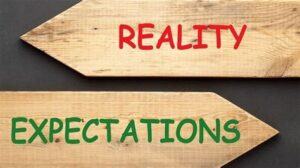
This might sound simple, but it’s an exercise that is quite effective.
A lot was expected of me, and I expected things in return. In the process, I couldn’t manage my expectations.
With time, I learned possible ways to find harmony between managing my expectations and reality. It was all about being gentle with myself and keeping my family on the same page.
10) Be quick but You are not in a hurry. Start as many times as need be, and the rest shall follow
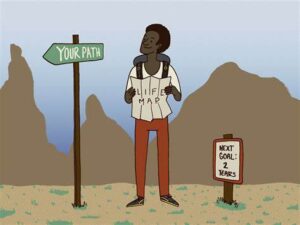
The shift from a healthy individual to a rare patient didn’t permit time to finish the unfinished.
Being steady and slow was so boring however the idea of not being in a hurry reminded me of efficiency. It created a solid foundation and empowered me to face my challenges with an active mindset.
Setting small-term goals and achieving them, inspired me to do better. Thinking twice before initiating health tips and practices helped me weigh the benefits and risks ensuring its alignment with my needs.
11) You need something extra to win a rare battle. Success doesn’t come easy
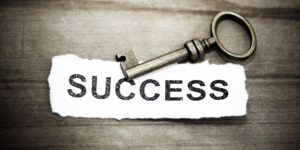
As my situation was unique, I knew ‘going that extra mile’ was the need of the hour.
Specialized knowledge, perseverance, hard work, control, sacrifice, and self-push were required to emerge.
It was that phase of my life when following the crowd, wasn’t worth it.
Connecting with useful people, and taking their advice provided me with emotional support. Integrating these suggestions helped me identify patterns, triggers, and what worked best. I felt equipped to make more informed decisions with new insights and strategies for managing my health conditions.
Conclusion
Life has various dynamics, and illnesses are an inevitable part of it.
There are many moments when we lack the required resources and skills. In such times, certain pieces of advice can be eye-openers.
Dynamic suggestions can give us the framework and offer flexibility and personalization in managing health challenges.
Tailor-made advice to suit specific needs and lifestyles can lead to better outcomes. The success of it depends on constant assessment and tweaking approaches based on what works best.
I reminded myself that incorporating worthwhile suggestions could be time-consuming however staying focused was important.
The advice mentioned above made small changes that positively impacted my recovery.
It is also important to understand that none of this advice can be a substitute for medical treatments. They act as a support system.
I’m all ears for your piece of advice!!
Disclaimer
I’m not a doctor; these reflections are based on personal experience and do not constitute medical advice. Always consult your healthcare provider when exploring therapeutic options.


